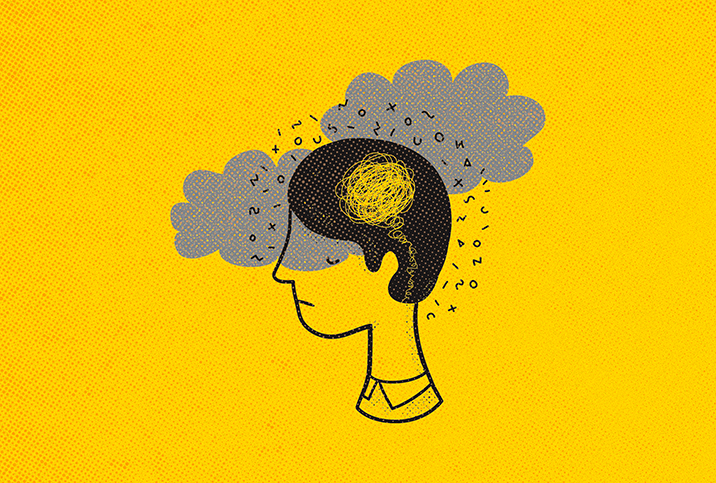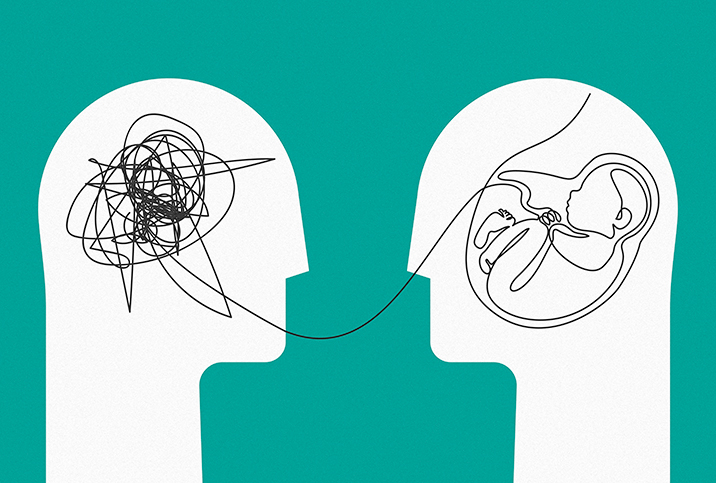How to Keep Your Mental Health Strong With Ovarian Cancer

Ovarian cancer is the second most common gynecologic cancer in the United States and the fifth most commonly diagnosed cancer in women. Unfortunately, it is largely asymptomatic until it has reached a more advanced stage.
What should you know about ovarian cancer?
According to American Cancer Society estimates for ovarian cancer, about 19,710 people will receive a new diagnosis of ovarian cancer in the United States in 2023, while about 13,270 will die from the disease.
While ovarian cancer often presents at an advanced stage, it remains a treatable disease, according to John P. Diaz, M.D., the chief of gynecologic oncology at the Miami Cancer Institute. Nearly 85 percent of diagnoses that present at an advanced stage enter remission following their primary therapy.
Still, receiving an ovarian cancer diagnosis and undergoing treatment is a stressful and arduous experience, and the threat posed by the disease can cause fear and anxiety. It often puts a significant strain on the patient’s mental health, Diaz said.
What are the mental health risks of an ovarian cancer diagnosis?
Receiving a positive cancer diagnosis is stressful for anyone. For women with ovarian cancer, their mental health can face major disruptions.
"An ovarian cancer diagnosis increases the risk of women developing depression and anxiety by nearly three-fold," Diaz said.
The statistic comes from a recent study that examined the incidence of mental illness among ovarian cancer survivors compared to a general population cohort. It found that the risk of developing depression among ovarian cancer survivors was 3.11 times higher within the first two years of cancer diagnosis. It is 1.69 times higher between two and five years after a diagnosis.
The risk of developing an anxiety disorder among ovarian cancer survivors was found to be 3.54 times higher in the first two years after diagnosis and 1.86 times higher between two and five years post-diagnosis.
The study also suggested that ovarian cancer survivors experienced an 80 percent increased risk of death when they had a diagnosed mental illness and a 94 percent increased risk of death with a depression diagnosis specifically. The study authors suggested that multidisciplinary care is needed to monitor and treat mental health conditions among ovarian cancer survivors.
Ovarian cancer patients experienced depression and anxiety at significantly higher rates across the treatment spectrum, according to a systematic review and meta-analysis.
Managing the mental health effects of cancer treatment
Managing mental health while suffering from ovarian cancer isn’t easy. Pay attention to how you’re feeling. Resist the urge to isolate. Consider these ways to stay on top of your mental health during your treatment.
Monitor your mental health
It’s normal to struggle with powerful emotions during your diagnosis and treatment. But if you feel as though your symptoms are spiraling downward, don’t ignore them. Diaz said it’s important for patients to speak with their physicians and other healthcare providers about how they’re feeling. They should report any mental or emotional symptoms they may be experiencing.
"Patients should be screened by their healthcare providers for mental health," Diaz said. "If patients develop signs and symptoms of difficulty with their mental health, they should be referred to a multidisciplinary team for management."
There are a variety of ways for ovarian cancer patients and survivors to manage and improve their mental health, he said, such as mental health counseling. The National Ovarian Cancer Coalition, for example, offers a designated emotional support program to anyone impacted by ovarian cancer, including patients, survivors and caregivers.
Finding support as you deal with the potentially toxic side effects of your treatment and the stress and worry of your diagnosis can help you better navigate this period in your life.
Get regular exercise
Physical activity is another important tool, Diaz said, though it’s important to check with your healthcare provider before changing or beginning a new exercise routine.
After receiving approval from your doctor, the American Cancer Society’s exercise guidelines include avoiding inactivity and returning to normal daily activities as soon as possible after diagnosis and treatment.
Then, start slowly and build up to 150 to 300 minutes of moderate activity each week—or 75 to 150 minutes of vigorous activity—at least 10 minutes at a time.
Include resistance training exercises at least two days per week. Then, add stretching exercises at least two days each week for a more balanced plan. Of course, you should speak with your medical team before beginning or continuing an exercise regimen.
Alternative therapy considerations
There are many alternative therapies patients and survivors can explore. One example, Diaz said, is acupuncture.
According to the National Cancer Institute, some people use acupuncture to help soothe feelings of anxiety and alleviate symptoms of depression, fatigue and sleep disturbance. Some people believe acupuncture could potentially help ease neuropathy symptoms, provide relief from hot flashes, or control nausea and vomiting.
Meditation and gentle yoga might also help with mental health management for ovarian cancer patients and survivors.
In some cases, if symptoms of anxiety and depression are severe, Diaz said medication could be explored as a potential treatment option. Always reach out to your doctor with your mental wellness concerns.
The bottom line
Mental health issues are important, especially for diagnosed ovarian cancer patients undergoing treatment, and shouldn’t be ignored. Increased support may contribute to a better quality of life and could help reduce the appearance of mental health disorders.


















